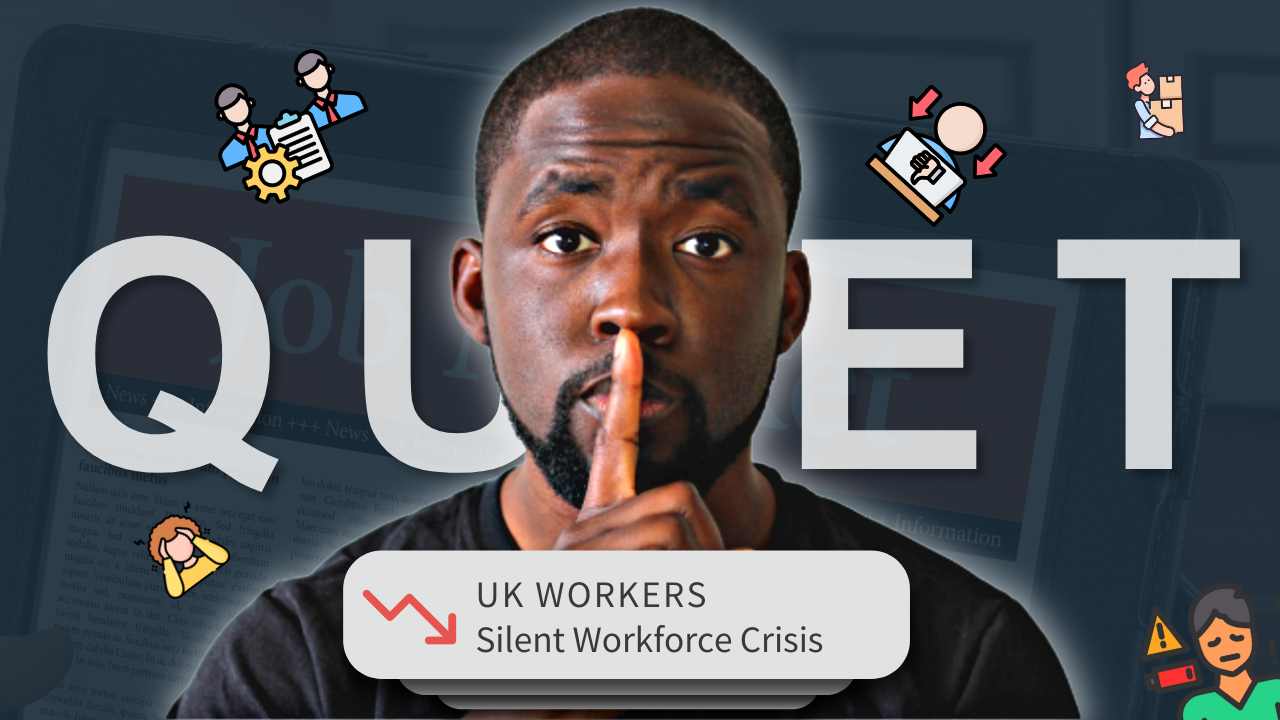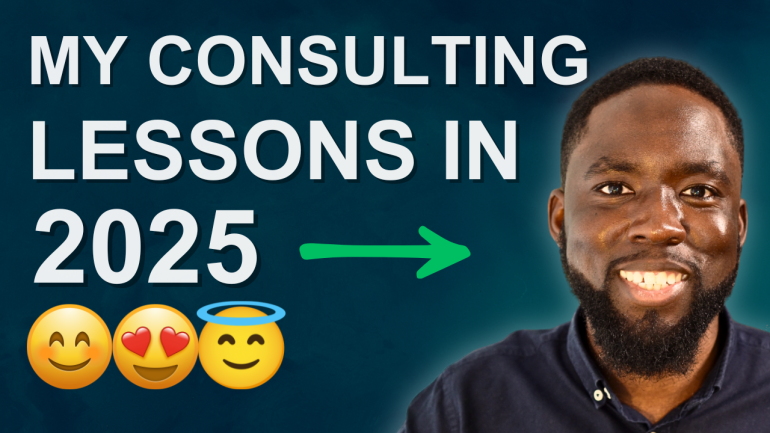Why the UK Job Market is Quiet Quitting and What You Can Do About It
Have you ever sat at your desk, eyes glazed over, mind drifting, wondering why you’re even here? You’re not alone. There’s a growing wave of people who feel exactly the same. They’re not leaving their jobs physically, but mentally, they’ve already checked out. It’s what’s called “quiet quitting,” and it’s shaking up workplaces across the UK and beyond ever since the COVID pandemic..
But let me be clear: this isn’t just about laziness or a lack of ambition. It’s a complex cocktail of systemic issues, personal pressures, and sheer burnout. In this article, I’m going to unpack why so many of us are quiet quitting, what it’s doing to our careers, and most importantly, what you can actually do about it.
So, if you’ve ever thought, “There’s got to be more to this,” then stick with me. This is for you.
The Perfect Storm: Why We’re Quiet Quitting
Let’s not sugarcoat it, the world of work has changed, and not always for the better.
The Cost of Living Squeeze
You’re working harder than ever, but your pay isn’t keeping up. Inflation’s rising on average over decades, taxes are up, wages are stagnant, and everything from your morning coffee to your rent feels like it’s draining your wallet. I’ve felt that pressure too, looking at the paycheck, wondering how it’ll stretch, wondering if this grind is worth it.
It’s not just about money, it’s about value. If you’re pouring your time, energy, and skills into a job that doesn’t pay enough for the life you want, it’s no surprise you feel disengaged. You start asking yourself, “Why bother?”
The Pandemic Hangover and Toxic Work Cultures
The pandemic changed the game. We saw leadership gaps exposed, managers who didn’t know how to lead, poor communication, and a lack of empathy. I remember being in roles where I felt unsupported, undervalued, and, frankly, invisible. There were times when I questioned my own capabilities because of the environment I was in.
And let’s not forget nepotism and toxic work cultures that still exist, where people who shouldn’t be leading are in charge, creating a cycle of stress, anxiety, and burnout.
Technology: A Double-Edged Sword
Don’t get me wrong, technology’s great. It’s made work faster and more connected. But it’s also blurred the lines between work and life. When your phone pings at 10PM, it’s hard to switch off. That “always on” culture chips away at your boundaries until you feel like a machine, not a human. I’ve been there, constantly stimulated, constantly “on,” but never really present.
The Emotional Toll: Burnout, Apathy, and Feeling Stuck
Quiet quitting isn’t just about being bored. It’s about emotional exhaustion, the sense that you’re running on fumes but have to keep going. I’ll never forget blacking out on a work call during the pandemic, completely overwhelmed by stress and low confidence. That was my wake-up call.
And if you’re not careful, this quiet quitting can lead to career stagnation. Without fresh achievements or meaningful engagement, you lose momentum. Your CV starts to look stale, your confidence dips, and the opportunities dry up.
From Stuck to Strategic: What You Can Actually Do
So, how do you break free from this cycle? Here’s the roadmap I’ve followed and what I coach others to do too.
Understand What’s Really Going On
Take a step back. Ask yourself:
- What’s making me feel this way?
- Who or what is draining my energy?
- Is it a person? A process? A lack of growth?
For me, it was a combination, leadership that didn’t communicate, a toxic culture, and unrealistic demands. Once I saw that clearly, I could make a plan.
Get Clear on Your Non-Negotiables
Clarity gives you power. What are your non-negotiables? For me, it’s my day rate. I know my worth, and I won’t go below it. People may think I’m crazy, but I’ve done the research, I know the market, and I know the value I bring.
Maybe for you, it’s not working past 6PM. Or it’s a minimum salary. Or a team culture that values wellbeing. Whatever it is, define it. And let it guide your decisions.
Make Small Changes Where You Can
Before you jump ship, think: What can I tweak right now?
For me, having regular 1:1s with a trusted colleague was a game-changer. We supported each other through the chaos. Maybe for you, it’s protecting your lunch break, blocking focus time in your calendar, or getting a coach. It’s about reclaiming your energy bit by bit.
Plan Your Next Move
If you know you need to leave, be strategic. Quiet quitting doesn’t mean giving up entirely, it means playing the long game. Document your wins. Use the PAR (Problem-Action-Result) method in your CV, show how you added value, solved problems, and improved processes.
And while you’re at it, think about your next steps. Do you need to upskill? Reskill? Learn project management? Leadership? AI tools like ChatGPT? Get clear on what’s going to give you the edge, and go after it.
Bonus Tip: Don’t Forget Your Why
Quiet quitting might feel like the end, but what if it’s a signal? A nudge to say, Hey, it’s time for change.
Your job doesn’t define you. Your worth isn’t tied to a title or a paycheck. It’s about building a life that works for you. That’s why I always say; understand, reach, and expand. Don’t settle for survival mode. Build the career and the life that lights you up.
Final Thoughts: Take the Next Step
Quiet quitting is real. It’s not just a buzzword it’s a symptom of deeper issues. But you’re not powerless. Start by understanding what’s draining you. Define your non-negotiables. Make small, meaningful changes. And if the time is right, plan your exit on your terms.
And if you’re ready to take action, start by updating your CV. Download my free template here, it’s the first step to articulating your value and creating a career that aligns with who you are.
You’ve got this. Understand, reach, and expand. Peace.







